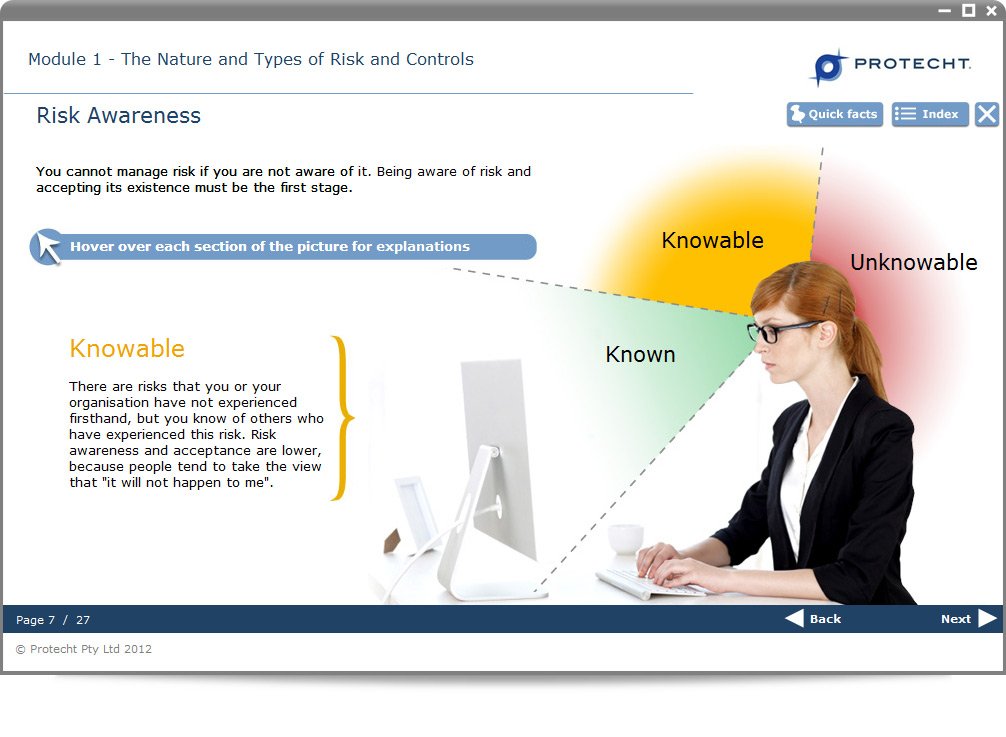Introduction to Regulation E and the Electronic Funds Transfer Act
Course Description
This training is for bank staff on rights, liabilities and responsibilities of businesses and their customers in electronic fund transfer systems
Much of Regulation E outlines the procedures consumers must follow in reporting errors with EFTs and the steps a bank must take to provide recourse.
Banks’ liabilities with respect to problematic e-payments are a daily cost of doing business. This cost can be minimized if bank staff are properly trained in the various requirements, timelines etc, and are able to advise their customers accordingly. Failure to comply, on the other hand, subjects a bank to significant penalties.
This short, one-module course sets out the rights and responsibilities of consumers and of banks when there is an EFT error. It includes a real-life case study.
Who is this training for?
The course is a suitable introduction for all customer-facing banking staff.
Scenario
Jasmine is checking her bank statement on-line. She notices an entry relating to a $600 purchase three days ago at a fruit and vegetable store in another city. Jasmine has never been to that store.
Jasmine checks further and discovers a few other, smaller purchases that she did not make.
She checks her pocketbook and discovers her debit card is missing. Jasmine realizes that she must have left it in a drug store when purchasing milk last week.
What should Jasmine do to try to get that money back?
Retail Banking Compliance Training
This course is part of the Retail Banking Compliance Suite
The courses available are
- Introduction to Fair Credit Reporting Act (FCRA)
- Fair Lending
- Introduction to the Office of Foreign Assets Control (OFAC)
- Introduction to Regulation Z and the Truth in Lending Act (TILA)
- Introduction to Regulation CC and the Expedited Funds Availability Act
- Introduction to Regulation D: Reserve Requirements
- Introduction to Regulation DD and the Truth in Savings Act
For more details, click on the course names above.
Course Outline
- Explain the purpose of Regulation E and the Electronic Funds Transfer Act
- Describe the responsibilities and liabilities of consumers who discover that their debit card may have been lost or stolen
- Describe the responsibilities of banks when an EFT error is reported to them









